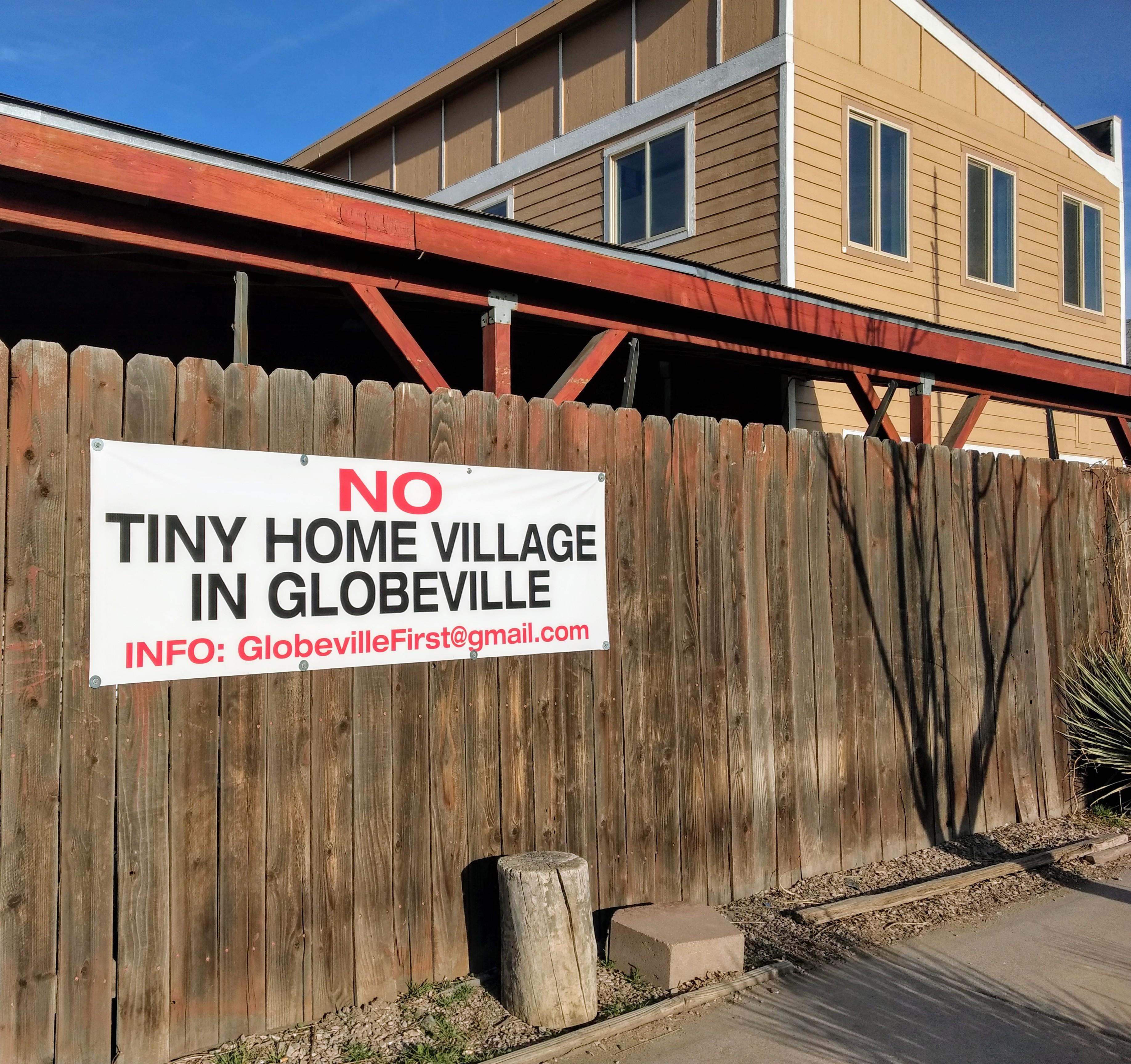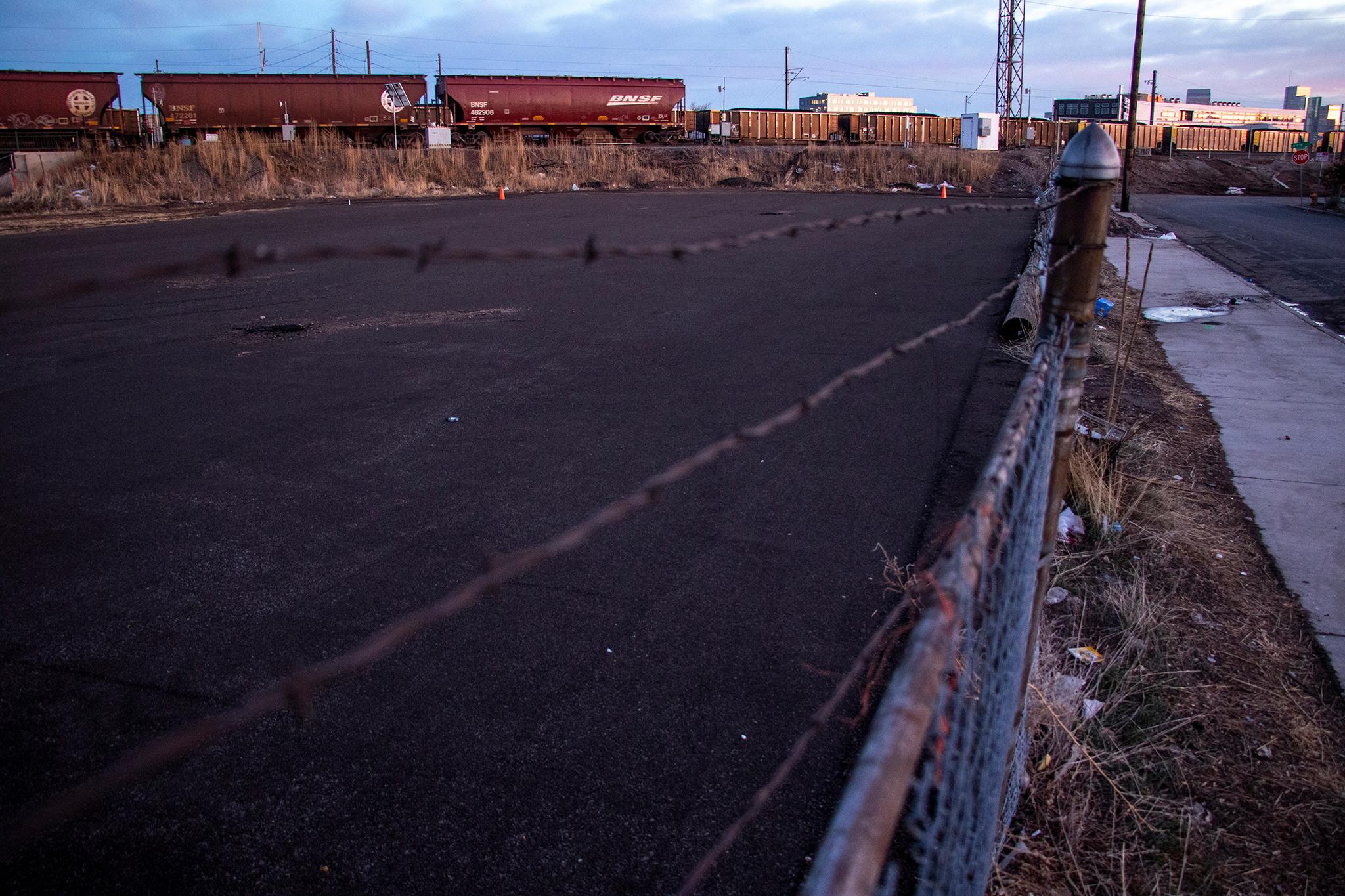Denver City Council will vote later this month on a proposal to move tiny homes for people experiencing homelessness to a city-owned vacant lot in Globeville, where many neighbors have expressed strong opposition.
City staff told the community of the plan to go ahead with the vote, which had been placed on hold because of the community's reaction, in an email and at a neighborhood meeting Tuesday at Globeville's Holy Transfiguration of Christ Orthodox Cathedral. People gathered amid tables set with vases of fresh flowers for an earlier church meeting expressed a mixture of incredulity and resolve.
"This email shocked me," said Jazz LeRoux, referring to a paragraph in which city staff said they had heard "excitement and support from people who have taken the time to email, call, write letters, and talk with us at their own front doors."
The city email did acknowledge "concerns from some neighbors over safety, whether this will be good for Globeville, requests for a shorter lease term and requests for the city to look for alternative locations."
The resolve was to keep fighting to keep Beloved Community Village out. LeRoux said he would present council members with results of a survey he and some of his neighbors have been conducting door-to-door in Globeville. So far, he said, of the 108 people who have answered the questionnaires, 103 oppose hosting the village of 11 small structures that are home to 12 people experiencing homelessness.
The City Council vote, likely April 29, will be preceded by a hearing at which community members will be able to speak for and against the proposal.
The city had offered 4400 North Pearl to the Colorado Village Collaborative, the nonprofit that sponsors Beloved Community Village, in January. The shelter alternative has been located for more than a year near the 38th and Blake commuter rail station on a plot slated for the development of affordable housing. Colorado Village Collaborative had initially planned to move to a site that a private developer had offered at Taxi. That fell through in November when Denver's public works department said the Taxi site would not work because of the potential there for swift-moving floodwaters. The city stepped in under a tight deadline -- the 38th and Blake site was originally available only until March 14, but the village recently got an extension to mid-May.
"I'm looking at it as, 'How do we keep this village from shutting down," Evan Dreyer, Mayor Michael Hancock's deputy chief of staff, told the 16 neighbors gathered at Holy Transfiguration.
Even with the extension, the short time frame is one of the reasons 4400 North Pearl remains the best option, Dreyer said. He said the city had looked at other sites it owns, and 4400 North Pearl best met criteria that included size, accessibility to transit and zoning considerations.
"This is the location," Dreyer said. "We're not talking about forever. We're talking about three years."
That's a year less than originally proposed. The city promised to monitor the village closely if it comes to 4400 North Pearl. Dreyer added that Colorado Village Collaborative has agreed to screen village residents to keep out sex offenders and take other steps to address concerns raised by Globeville residents.
In what was described as an indication of the nonprofit's commitment to being a good neighbor, it and the city have scheduled an April 13 clean-up day in Globeville to tackle trash and graffiti. The salutation on the event's brightly colored flyers read: "Globeville Residents, we're coming to your neighborhood!"
Dreyer told the group at the church that the proposed move to 4400 North Pearl was "not a done deal, because this requires a vote of the City Council."
The Colorado Village Collaborative has said five former village residents are now in permanent housing and that thanks in part to finding shelter, the 12 in the tiny homes now are all working, in school or on disability. The Burnes Center on Poverty and Homelessness at the University of Denver studied the village at 38th and Blake and found it improved the employment prospects and health of its residents and that crime rates had not increased significantly within a half mile and gone down within a quarter mile.
Globeville residents, though, sharply question whether the impact on such a small group of people is worth the cost, not least in possible disruption to their neighborhood. They also note that their neighborhood has already hosted homeless shelters and outreach programs for people who have been incarcerated or are struggling with substance abuse.
"We are already doing our share," Derik Martinez said at the church meeting. "We have our own share of problems and we are all aware of them. We have drug problems here. We have gang problems here. We have drug rehab and transitional housing."
LeRoux said: "It feels like we're not being listened to."
The village proposal has both angered and energized a long-neglected neighborhood. Globeville First, which emerged to fight the village, worked with an older group, Globeville K.A.R.E.S., to organize Tuesday's meeting with city officials.
Gayle LeRoux helped conduct the door-to-door surveys, which included a question about what people would like to see at 4400 North Pearl. Faces brightened and people spoke of parks, a food co-op, art exhibitions, she said.
"They just thought, "For once, someone's asking me what I want."'













